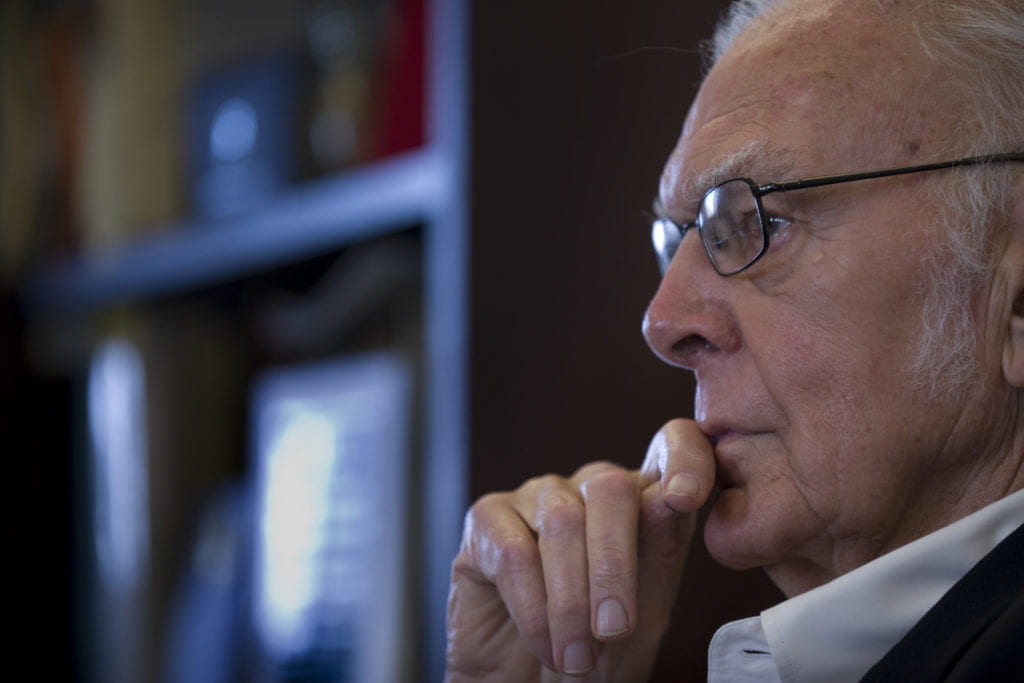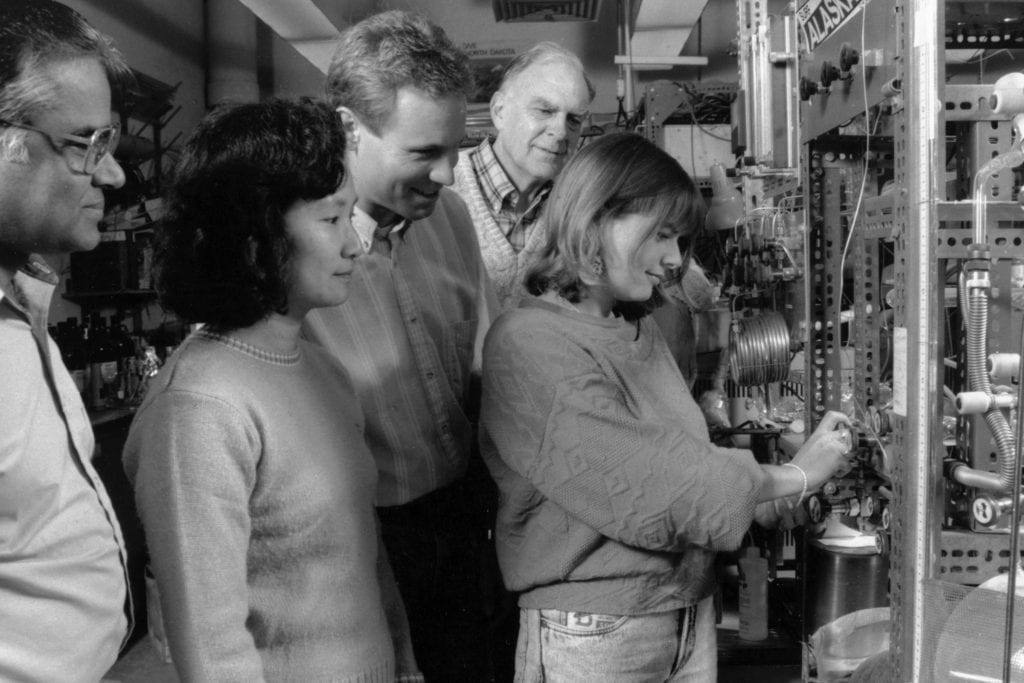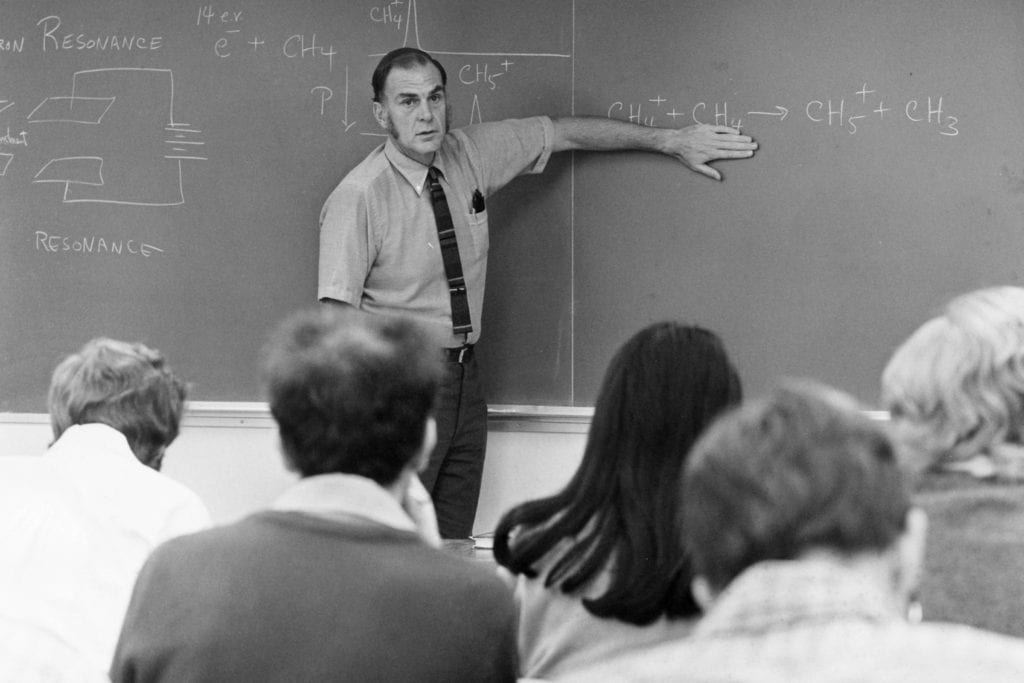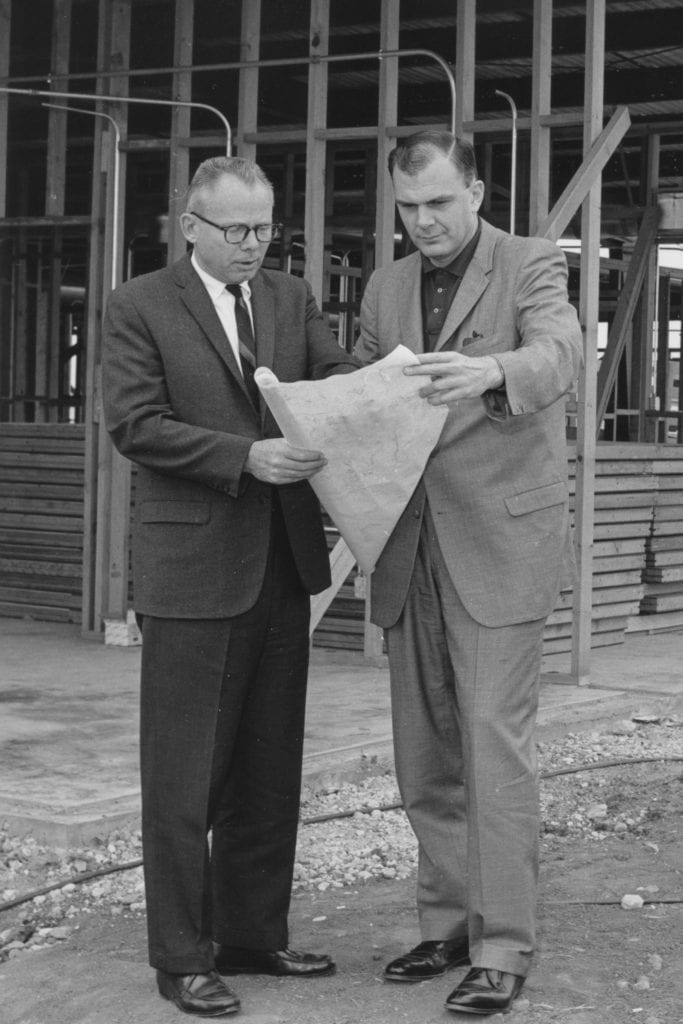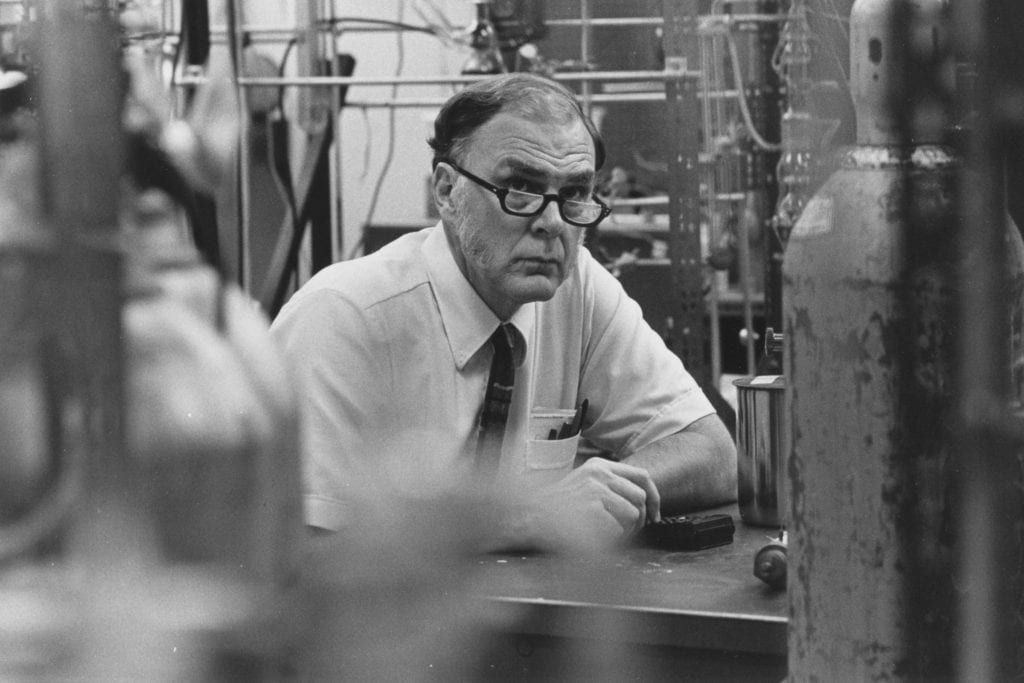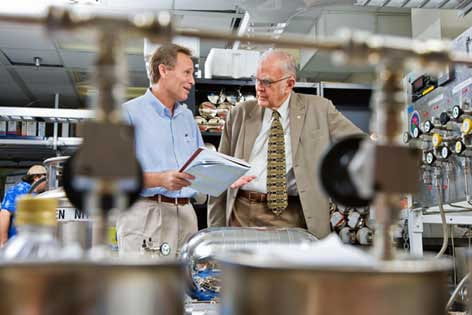Deconstructing F. Sherwood Rowland
Scientific and personal papers and artifacts show the evolution of F. Sherwood Rowland’s life as a scientist, communicator and Nobel laureate.
Deep in the dusty basement at UC Irvine’s Rowland Hall two years ago, more than 300 cartons of papers, photos, videos, transparencies, slides, cartoons, audiotapes and books lay in disarray, belying the meticulous nature of their owner: F. Sherwood Rowland.
When the Nobel laureate in chemistry donated it all to UCI Libraries’ Special Collections & Archives in 2009, library staff began a kind of archaeological dig. They sorted, labeled and cataloged the scientific research and personal correspondence, and what has emerged is a portrait of a man internationally recognized for not only his lab work but his efforts to inform other scientists, the public and policymakers of the threats posed by chemical pollutants to Earth’s atmosphere.
A sampling of the resultant collection will debut at 6 p.m. Friday, Nov. 18, in Langson Library’s Muriel Ansley Reynolds Gallery, with a talk by Ralph Cicerone, UCI chancellor emeritus and president of the National Academy of Sciences. Called “Discovery of a Lifetime,” the fall exhibit is the third in UCI’s 50-to-50 series of monthly events leading up to the campus’s 50th anniversary.
It traces Rowland’s groundbreaking work as one of the first scientists to warn that chlorofluorocarbons released into the atmosphere were depleting the Earth’s vital ozone layer. His research – and that of postdoctoral colleague Mario Molina – contributed to the passing of the 1987 Montreal Protocol, a global treaty phasing out the use of CFCs, and brought worldwide attention to the impact of human-contributed greenhouse gases on the planet. He won the Nobel Prize in chemistry in 1995 and is UCI’s Donald Bren Research Professor in Chemistry and Earth System Science.
“Rowland was well established as a scientist when the opportunity came along to look at something that others weren’t looking at,” says Michelle Light, UCI Libraries’ director of special collections, archives & digital scholarship, “and what we can see in these materials is the equally interesting aspect of how a scientist comes to be a communicator to general audiences – how he shaped the message of the perils of manmade impact on the Earth. And we can see his interest expand to overpopulation and impending food crises. He could authoritatively articulate the scientific problems the world faces.”
Mitchell Brown, exhibit curator and research librarian for chemistry, Earth system science & Russian studies, says the collection is available to researchers who want to peruse the handwritten notes, lab cards, etc. The only thing missing, he says, is the actual notebook in which the CFC discovery is noted; it belongs to Molina.
Calling Rowland “the Galileo story of his time,” Brown says much of the correspondence shows him as “calm, reasonable and thoughtful in the face of critics who weren’t.” The atmospheric chemist saved editorial cartoons that disparaged his findings, and many of the originals hang in his home. He preserved celebratory communiques as well, including an answering machine message from “Al” (as in Al Gore) congratulating him on the Nobel Prize.
“There is a heroic arc to Rowland’s story,” Brown says. “Throughout the distraction from detractors and attackers, he remains the person he always was. And he got the recognition in the end.”
Many of the science-oriented notations that circulated among labs and researchers are sprinkled with personal anecdotes, he adds, “so you get some evidence of Rowland’s whole life, from childhood pictures to his time as a semipro baseball player. Mrs. Rowland and his children played a role too. They were engaged in the lab doing things such as lettering on slides.”
Virginia Allison, chair of UCI Libraries’ exhibit team, is pulling together the most visual elements of the collection for the display. In a staging room in Special Collections & Archives’ warren of offices, she’s busily arranging air sampling canisters, outlawed aerosol cans, cartoons, photos and more. All will be on display through April 2012.
The F. Sherwood Rowland Papers are available to researchers and the general public in the Special Collections & Archives reading room. A guide to the material is posted online.
Funding for processing this collection was provided by the Andrew W. Mellon Foundation and administered by the Council on Library & Information Resources.
